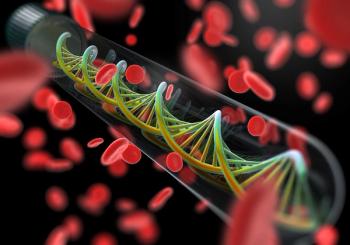
Comparable Safety Observed in Dostarlimab for Endometrial Cancer Subtypes

The second interim analysis of the phase 3 RUBY trial found the safety profile was consistent with the first interim analysis and no new deaths due to AEs were observed.
No new safety signals or significant toxicities were found in treatment with dostarlimab-gxly (Jemperli) combined with carboplatin/paclitaxel in patients with primary advanced endometrial cancer, according to Ritu Salani, MD.
CancerNetwork® spoke with Salani, director of Gynecologic Oncology at the University of California, Los Angeles Health, about the
Despite repeated use of immunotherapy and chemotherapy across different disease sites, Salani noted that nuances that occur with these treatment types and toxicities should be readily recognized and managed. Additionally, monitoring for thyroid disease and adrenal insufficiency, as well as less common toxicities, are important to ensure easy implementation of immunotherapy and chemotherapy and toxicity management.
The second interim analysis from the RUBY trial found the safety profile was consistent with the first interim analysis and no new deaths due to adverse effects (AEs) were observed.2 For this analysis, the median duration of treatment was 43.0 weeks (range, 3.0-192.6) in the dostarlimab arm and 36.0 weeks (range, 2.1-193.1) in the placebo arm.
Across the overall population, any-grade treatment-emergent adverse effects (TEAEs) relating to dostarlimab were noted in 84.2% vs 74.4% relating to the placebo. Furthermore, grade 3 or higher TEAEs related to dostarlimab in 36.1% vs 19.9% related to placebo.
Grade 1 or 2 AEs occurring in 40% or more of patients were mostly related to chemotherapy, including anemia in the placebo plus carboplatin-paclitaxel arm, which was grade 2 or 3 in most patients. Serious TEAEs occurred in 19.5% and 12.2% in the dostarlimab and placebo arms, respectively, with discontinuation rates occurring in 19.1% and 8.1% of patients, respectively.
Transcript:
There is not anything that stands out. We have been using immunotherapy and chemotherapy for several years in different disease sites. We have all found that there are always some nuances with it, and it is important to be able to recognize and manage toxicities readily. There are no new safety signals that we are seeing, particularly in the endometrial cancer population, but monitoring for thyroid disease and adrenal insufficiency and then having acuity for other less common toxicities, even like myocarditis or cardiac implications, pneumonitis; things of that sort are important. We will all find that these therapies are easy to implement and manage with appropriate monitoring.
References
- FDA expands endometrial cancer indication for dostarlimab-gxly with chemotherapy. News release. FDA. August 1, 2024. Accessed August 16, 2024. https://tinyurl.com/mtr6tpyp
- Powell MA, Bjørge L, Willmont L, et al. Overall survival in patients with endometrial cancer treated with dostarlimab plus carboplatin–paclitaxel in the randomized ENGOT-EN6/GOG-3031/RUBY trial. Ann Oncol. 2024;35(8):728-738. doi:10.1016/j.annonc.2024.05.546
Newsletter
Stay up to date on recent advances in the multidisciplinary approach to cancer.





































